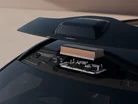Automotive firms use technology to develop safer EVs

Entering the final month of the year, we’re reflecting on a month of more sustainability and electrification insights from some of the leading businesses in the electric vehicle (EV) sector.
This week there was a particular emphasis on safety and technology. EV Magazine also released a second issue of the digital publication, featuring an exclusive interview with off-road racing drivers, and the Top 10 CEOs of firms influencing future e-mobility.
Electric vehicles require innovative roadside assistance
If you were wondering what roadside assistance for electric vehicles (EVs) looks like, L-Charge has the answer.
In Madrid, the innovative charging solution provider has deployed an EV charging van, which acts as a mobile charging station. If a driver gets caught without enough charge to make it through the next leg of their journey, the L-Charge van is booked via an app similar to that of a taxi rank or uber.
Extreme E: pioneering sustainable motoring on all terrains
Motorsport is taking on a new form. Beyond the collaboration of leading organisations and the excitement of high-power output from the smallest of engines, technology and sustainability are incorporated into the fold.
Following the creation of Formula E, its Chairman Alejandro Agag—also Founder and CEO of Extreme E, and Chairman of the E1 Series—decided it was time to take electrification to even greater heights.
Honda commits to hydrogen fuel-cell EV production deadline
Hydrogen fuel-cell is a decarbonised method of powering vehicles, which results in nothing but the production of water—an element that one would expect to find superior to electricity.
But there are questions around whether the process is necessary as a method of decarbonisation thanks to the growing demand for EVs, therefore, hydrogen could become obsolete.
Although this still raises curiosity, especially when Honda, the Japanese car manufacturer that has already released EVs, is venturing towards hydrogen vehicles as well. It seems the company wants to combine the two and produce a hydrogen-based hybrid vehicle in 2024.
Is the latest Volvo EV a glimpse into an electrified future?
The automotive manufacturer, Volvo is in the spotlight for its electric vehicle (EV) innovations, but for many years has also adopted safety as its unique selling proposition (USP).
The Swedish car manufacturer has been heralded as a producer of some of the safest vehicles on the market. In fact, the question that often arises is “which Volvo is the safest?”
Top 10 CEOs of firms influencing future e-mobility
The shift from fossil fuel power to electric vehicles (EVs) is no easy task, and while we look at the major companies advancing mobility across the globe, it’s also important to recognise the leaders that are driving said companies forward. With targets set to minimise the increasing global temperature and reduce our impact on the planet, organisational leaders are under immense pressure to provide for their employees, the public, and, most critically, the planet.
While looking at some of the most innovative companies in the e-mobility industry today, we also highlight the CEOs that have bolstered much-needed determination and support for global EV adoption.

